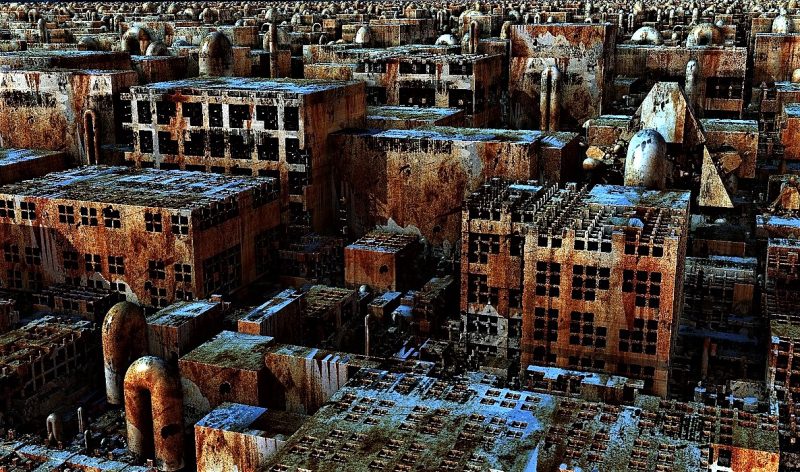
Dick's The Man in the High Castle (1962). The neologism, using chronos instead of topos, has since been used to refer to non-existent idealized times in fiction, such as Philip Roth's The Plot Against America (2004), and Philip K. In 1876, writer Charles Renouvier published a novel called Uchronia ( French Uchronie). The opposite of a utopia, dystopia is a concept which surpassed utopia in popularity in the fictional literature from the 1950s onwards, chiefly because of the impact of George Orwell's Nineteen Eighty‑ Four. Dystopia, a term meaning "bad place" coined in 1868, draws on this latter meaning. The pronunciations of eutopia and utopia in English are identical, which may have given rise to the change in meaning.

In his original work, More carefully pointed out the similarity of the word to eutopia, meaning “good place”, from Greek: εὖ (“good” or “well”) and τόπος (“place”), which ostensibly would be the more appropriate term for the concept in modern English. However, in standard usage, the word's meaning has shifted and now usually describes a non-existent society that is intended to be viewed as considerably better than contemporary society. It literally translates as “no place”, coming from the Greek: οὐ (“not”) and τόπος (“place”), and meant any non-existent society, when ‘described in considerable detail’. The word utopia was coined in 1516 from Ancient Greek by the Englishman Sir Thomas More for his Latin text Utopia. This is the woodcut for Utopia's map as it appears in Thomas More's Utopia printed by Dirk Martens in December 1516 (the first edition). Utopia has an inherent contradictory nature here. But if used wrongly, it becomes dangerous.
Utopia definicion free#
There are socialist, capitalist, monarchical, democratic, anarchist, ecological, feminist, patriarchal, egalitarian, hierarchical, racist, left-wing, right-wing, reformist, free love, nuclear family, extended family, gay, lesbian and many more utopias Utopianism, some argue, is essential for the improvement of the human condition. Lyman Tower Sargent argues that the nature of a utopia is inherently contradictory because societies are not homogeneous and have desires which conflict and therefore cannot simultaneously be satisfied. Hypothetical utopias focus on-amongst other things-equality, in such categories as economics, government and justice, with the method and structure of proposed implementation varying based on ideology. In common parlance, the word or its adjectival form may be used synonymously with "impossible", "far-fetched" or "deluded". However, it may also denote an intentional community.

It was coined by Sir Thomas More for his 1516 book Utopia, describing a fictional island society in the New World. 1968 New Scientist 11 July 96/3 It is a pleasant change to read some hope for our future.‥ I fear that our real future is more likely to be dystopian.A utopia or eutopia ( / j uː ˈ t oʊ p i ə/ yoo- TOH-pee-ə) typically describes an imaginary community or society that possesses highly desirable or nearly perfect qualities for its members.

They describe not a world we should like to live in, but one we must be sure to avoid. 22 The modern classics-Aldous Huxley's Brave New World and George Orwell's Nineteen Eighty Four-are dystopias. 27 A strand of utopianism or dystopianism. 12 Stories‥that seemed in their dystopian way to be saying something important. Walsh From Utopia to Nightmare 11 The ‘dystopia’ or ‘inverted utopia’. 298 The Mundus Alter et Idem is‥the opposite of eutopia, the ideal society: it is a dystopia, if it is permissible to coin a word. 1952 Negley & Patrick Quest for Utopia xvii. What is commonly called Utopian is something too good to be practicable but what they appear to favour is too bad to be practicable. 1517/1 It is, perhaps, too complimentary to call them Utopians, they ought rather to be called dys-topians, or caco-topians.


 0 kommentar(er)
0 kommentar(er)
